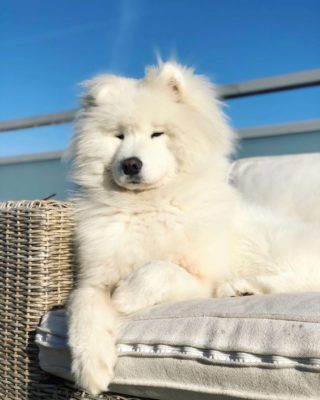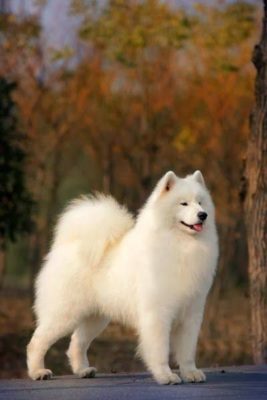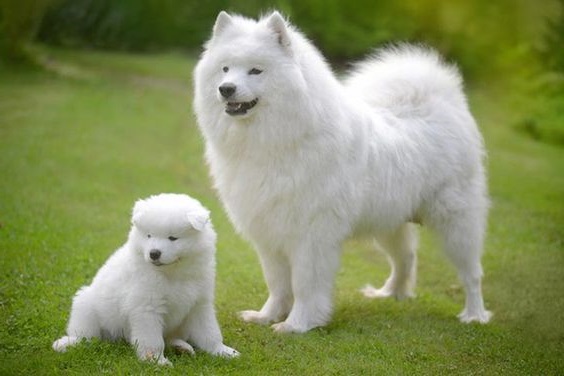Samoyed
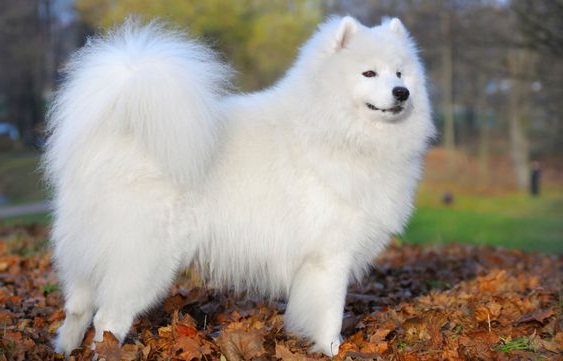
The Samoyed dog is a friendly, good-looking dog. They are intelligent dogs with a touch of independence. Bred to live in a tent near their families, they get along well with people. Samoyeds make disturbing barking noises and often turn into annoying barkers if left alone for long periods.
Table of Contents
Breed Information
| Another Name | Samoiedskaya Sobaka, Bjelkier |
| Origin | Northwest Russia and Western Siberia |
| Height | Males 54-60 cm Females 55-56 cm |
| Weight | Males 20-33 kg Females 17-25 kg |
| Fur | Medium length |
| Color | White, cream or white with pale marks |
| Lifespan | 12-14 years |
| FCI Classification | Spitz and primitive types |
| Group | Hunting dogs, protection dogs, dogs for children, sled dogs |
| Price | $800-6000 |
Breed Photos
Origin History
The Samoyed name comes from the Samoyeds, a semi-nomadic Asian who migrated to Siberia a thousand years ago. They bred dogs for hard work in the coldest inhabited places on earth. The Samoyeds lived in tents and kept warm with their packs of dogs during Arctic nights. This human and canine cooperation for mutual survival strengthened the close bond between the Samoyeds and humans. When the Samoyed dogs were not sledding across the vast expanses of Siberia, they earned their food as guard dogs and hunters.
At the end of the eighteenth century, Samoyeds were first imported to England and afterward to America. There they were in demand in popular shows as well as in the royal family. In America, the sparkling white dog made history in 1906 as the first dog of the breed (then known as a Samoyed), registered by the American Kennel Club.
Appearance
Samoyeds are dogs of sturdy build, with a fluffy tail curled on the back and turned sideways. The ears are erect, and the head is broad. The corners of the lips curve, creating the characteristic “Sammy smile. Samoyeds should have a beautiful dark pigment around the eyes, nose, and lips, despite the white coat color.
The sparkling white coat is the glory of the Samoyed breed. As you would expect from a breed of Nordic origin, it is a thick, stiff, straight coat with a thick undercoat. The color is bright white, although bisque or cream coloring is allowed.
Character
The Samoyed dog is a friendly, good-looking dog. They are intelligent dogs with a touch of independence. Bred to live in a tent near their families, they get along well with people. Samoyeds make disturbing barking noises and often turn into annoying barkers if left alone for long periods.
Samoyeds tend to get along well with other dogs and other pets they have grown up with. They are herding dogs and may show some tendency to chase or suppress. They generally get along well with children, although they can be a little noisy for little ones.
Care
Samoyeds shed a lot, so they require frequent grooming to look and feel their best. Because of their double coats, dirt and debris get lost in their fur, resulting in tangles and tangles. Regular brushing is a key part of grooming Samoyeds, especially during their peak molting period, usually twice a year. Although it is possible to care for a Samoyed at home properly, it is advisable to contact professionals for the best results.
Training
Samoyeds enjoy being with their owners and participating in family activities. They need daily exercise and enjoy playing with people in a safely fenced yard or long walks on a leash. The breed has a strong urge to run and roam, and if lost, the dog can travel many miles, exposing itself to danger.
Common Diseases
Samoyeds are generally healthy dogs. But responsible breeders check their stock for diseases such as hip dysplasia, eye, and heart disease. Samoyeds’ teeth should be brushed frequently, using a toothpaste designed for dogs. Regular vet visits for checkups and parasite control help ensure a long and healthy life for your dog.
Nutrition
Samoyeds should thrive on high-quality dog food under the supervision and approval of your veterinarian. Any diet should be appropriate for the dog’s age (puppy, adult, or senior). Some dogs are prone to obesity, so watch your dog’s calorie intake and weight level. Treats can be an important exercise aid, but too many can cause obesity.
If you have decided on a diet of natural products, you should know which foods you can give your pet and which will cause irreparable harm to his health or stomach. So, the Samoyed husky products are beef, chicken, and turkey; fish without bones; porridge rice or buckwheat, or both; kefir, nonfat natural cottage cheese sour milk; vegetables, fruits, and greens. The latter items are given only one item per day to avoid food allergies.
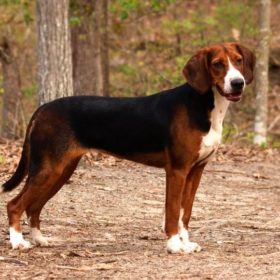 Hamiltonstövare
Hamiltonstövare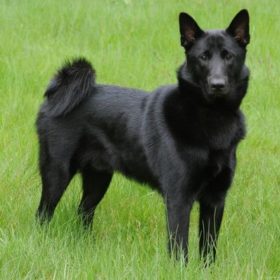 Black Norwegian Elkhound
Black Norwegian Elkhound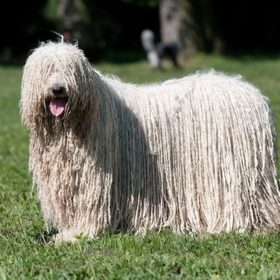 Komondor
Komondor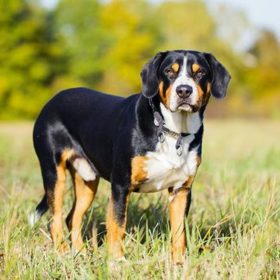 Entlebucher Mountain Dog
Entlebucher Mountain Dog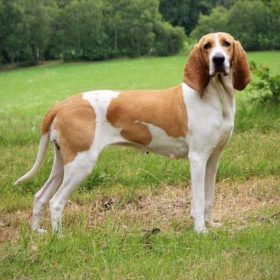 Schweizer Laufhund
Schweizer Laufhund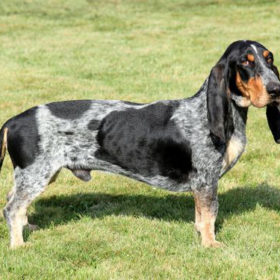 Basset Bleu de Gascogne
Basset Bleu de Gascogne